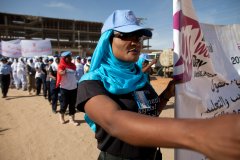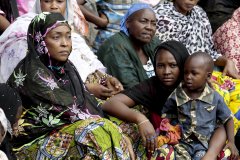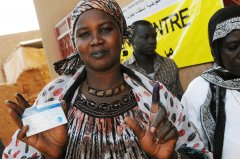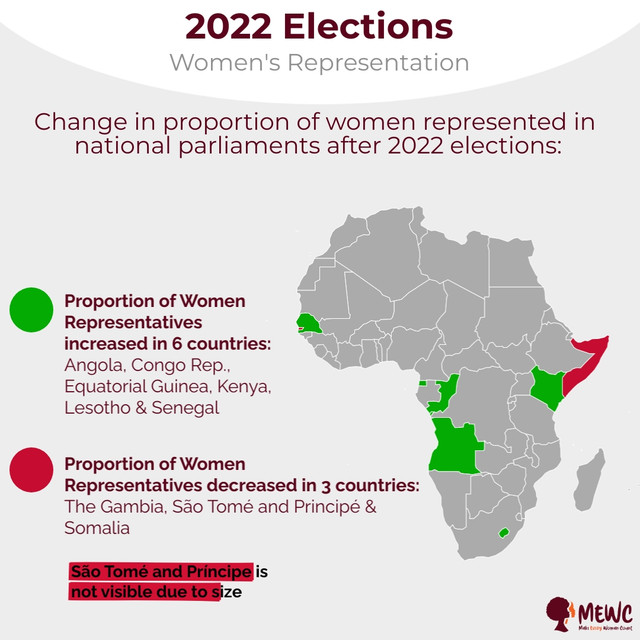Gender Issues Showlist
Women, Peace & Security
UNSCR 1325 calls on all parties to: protect and respect the rights of women and girls in conflict & post-conflict; increase women participation in all conflict resolution, peacekeeping and peace-building & to end impunity by prosecuting perpetrators of sexual and other violence on women and girls
index.php?option=com_content&view=category&id=56&Itemid=1913
Human Rights of Women
Thirty six years after the adoption of CEDAW, many women and girls still do not have equal opportunities to realize rights recognized by law. Women are denied the right to own property or inherit land. They face social exclusion, “honor killings”, FGM, trafficking, restricted mobility, early marriage,...
index.php?option=com_content&view=category&id=44&Itemid=1908
Violence Against Women
Violence against women is the most shameful human rights violation. Gender based violence not only violates human rights, but also hampers productivity, reduces human capital and undermines economic growth. It is estimated that up to 70 per cent of women experience violence in their lifetime
index.php?option=com_content&view=category&id=69&Itemid=1912
Political Participation & Leadership
Where women are fully represented, societies are more peaceful and stable. Women political participation is fundamental for gender equality and their representation in positions of leadership must be a priority for all Africans governments.
index.php?option=com_content&view=category&id=65&Itemid=1911
Latest News
- COTE D'IVOIRE: South-South Meeting to Promote Gender Equality and Combat Deforestation
- RWANDA: Rwanda Set to Launch Cervical Cancer Elimination Plan
- NIGERIA: Over 5,000 Nigerian Women Stranded in Iraq - Govt
- SUDAN: Healthcare Collapse Threatens Pregnant Women in Sudan's Sharg El Nil
- GHANA: President Nominates 12 More Ministers
- Senegal: Parliamentary election 2024
- Mauritius: Parliamentary election 2024
- Ghana: Presidential and Parliamentary Elections
- Botswana: Parliamentary elections 2024
- Algeria: Presidential Election 2024
Senegal: Parliamentary election 2024
On 12 September 2024, President Faye dissolved Senegal’s National Assembly and announced that the country would hold its parliamentary elections on 17 November 2024. The Patriots of Senegal (Pastef) won a majority of the 165 seats up for election, obtaining 130. The coalition Takku Wallu Senegal secured 16 seats, while the Jam ak Njarin coalition won seven seats. The elections come nearly 8 months after the Presidential polls and at a time when Senegal faces increasing challenges. Following the 2024 parliamentary polls, women’s representation in the National Assembly decreased.
Mauritius: Parliamentary election 2024
The Alliance for Change (AdC) won an overwhelming victory in the parliamentary election held in Mauritius on 10 November 2024. The AdC obtained 60 out of the 62 directly elected seats, while the Organisation of the People of Rodrigues (OPR) secured the remaining two seats. With its victory, Mr Navinchandra Ramgoolam, leader of the AdC became Prime Minister of Mauritius. While there was a slight increase in the percentage of women directly elected to the National Assembly, Mauritian women’s political representation remains low.
Botswana: Parliamentary elections 2024
On 30 October 2024, Botswana held its parliamentary elections. 81% of registered voters participated, indicating a significant interest in the polls. The UDC won 36 of the 61 directly elected seats up for election. The BDP, which had been in power since Botswana’s independence, obtained four seats. Although there was a slight increase in the percentage of female candidates, women's representation in the National Assembly declined following the 2024 polls.
Ghana: Presidential and Parliamentary Elections
In the recently concluded 2024 Ghanian polls, the National Democratic Congress (NDC) won the presidency and gained the most seats in parliament. Former President John Mahama of the NDC won the presidency, obtaining 56.3% of the votes. History was made during the presidential election. Professor Naana Jane Opoku-Agyemang, Mr Mahama's running mate, became the country's first female Vice president-elect.
Algeria: Presidential Election 2024
Algeria held its presidential election on 7 September 2024. Incumbent President Abdelamajid Tebboune received 84.3% of the votes. During the election period, there were accusations of corruption and malpractice. Voter turnout was low, with 26.5% of Algerians participating. No women contested the presidential election.
2019 Elections Monitoring
Our aim with the monitoring of elections and political participation of women in Africa is to provide a deeper analysis, in the form of briefing papers that will incorporate primary sources: the views and voices of parties and voters on the ground. Through a table with statistical data, we will be specifically looking at the number of women (i) registered to vote, (ii) running as candidates, (iii) who are elected following the elections. Our analysis will also include an article on the gender specificities of the country where the election is taking place. We will be looking at the situation of women prior to the elections as well as the way that the elections impact the lives of women.
While the early 20th century saw queens ruling various African countries, notably Ethiopia and Swaziland, the early 1990s saw women appearing on the African political scene, notably in Liberia, Burundi and Rwanda with female presidents and prime ministers. We now hope that the second decade of this millennium will see the rise of true female political participation sweep through Africa, with an increased number of women taking part in the polls, being elected as candidates and playing a key role in shaping their own country’s future.
Objectives:
The objective is to provide an easy to use tool to follow the role of women in elections across Africa by covering the position of female candidates before and after the elections have taken place.The accessibility of current and reliable data on women’s political participation, access to leadership is even more difficult to find and compile. Without this information it is difficult to construct an objective view, analyze and interpret the position of women with regards to political participation. By providing this data in an accessible, easy to read framework (ie table) MEWC hopes to provide an information gateway to researchers, policy makers, students other women’s organizations and local voters...
2020 Election Monitoring
Our aim with the monitoring of elections and political participation of women in Africa is to provide a deeper analysis, in the form of briefing papers that will incorporate primary sources: the views and voices of parties and voters on the ground. Through a table with statistical data, we will be specifically looking at the number of women (i) registered to vote, (ii) running as candidates, (iii) who are elected following the elections. Our analysis will also include an article on the gender specificities of the country where the election is taking place. We will be looking at the situation of women prior to the elections as well as the way that the elections impact the lives of women.
While the early 20th century saw queens ruling various African countries, notably Ethiopia and Swaziland, the early 1990s saw women appearing on the African political scene, notably in Liberia, Burundi and Rwanda with female presidents and prime ministers. We now hope that the second decade of this millennium will see the rise of true female political participation sweep through Africa, with an increased number of women taking part in the polls, being elected as candidates and playing a key role in shaping their own country’s future.
Objectives:
The objective is to provide an easy to use tool to follow the role of women in elections across Africa by covering the position of female candidates before and after the elections have taken place.The accessibility of current and reliable data on women’s political participation, access to leadership is even more difficult to find and compile. Without this information it is difficult to construct an objective view, analyze and interpret the position of women with regards to political participation. By providing this data in an accessible, easy to read framework (ie table) MEWC hopes to provide an information gateway to researchers, policy makers, students other women’s organizations and local voters...
2021 Elections Monitoring
2021 Elections Monitoring
2022 Elections Monitoring
2022 Elections Monitoring
2024 Elections Monitoring
Our objective is to provide a user-friendly tool to track women's roles in African elections, focusing on female candidates' status before and after elections. Access to up-to-date and reliable data on women’s political involvement and leadership access is rare. Without such data, it's challenging to objectively view, analyze, and understand women's political positions. By offering this data in an accessible format (e.g., tables), MEWC aims to be an information resource for researchers, policymakers, students, women's organizations, and local voters.
Our goal in monitoring elections and women's political participation in Africa is to offer detailed analysis through briefing papers. We'll present statistical data on women's engagement in politics, specifically looking at (i) registered female voters, (ii) women running as candidates, and (iii) women elected post-election. This analysis will also cover gender dynamics in the election's country, examining women's conditions before and how the elections affect women's lives.





